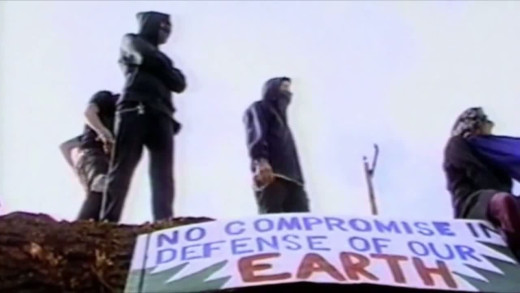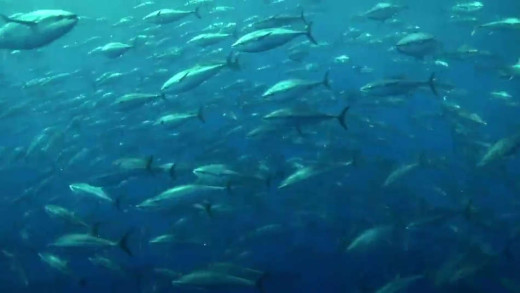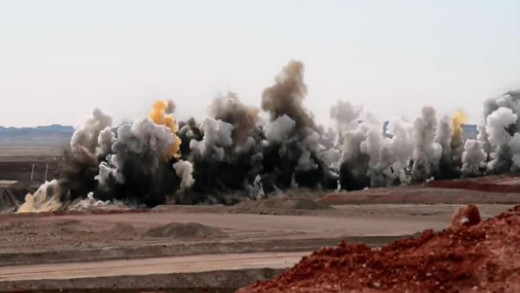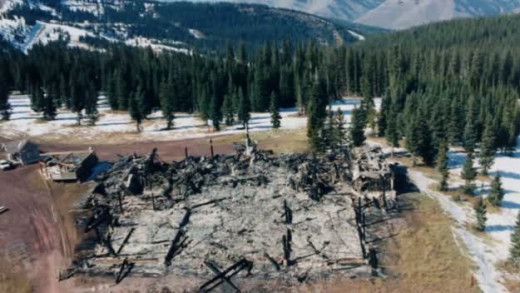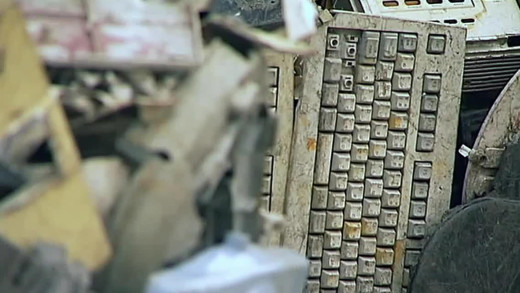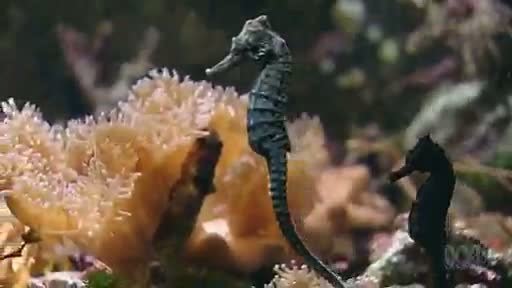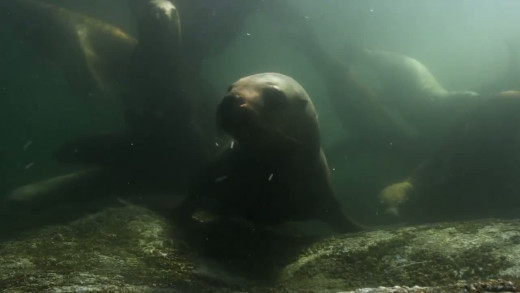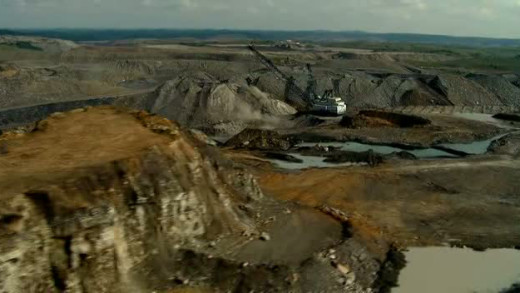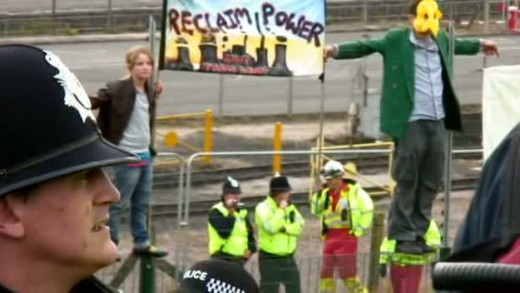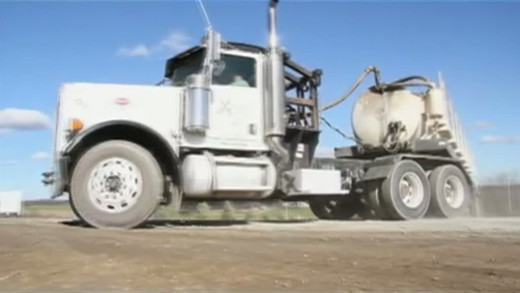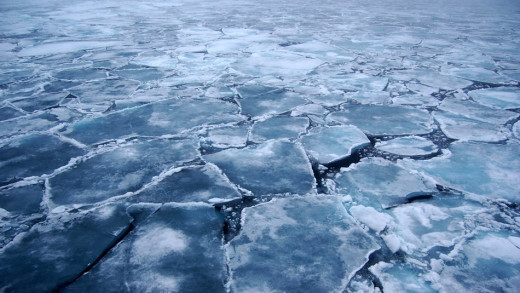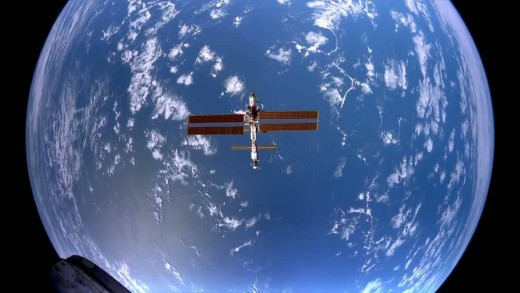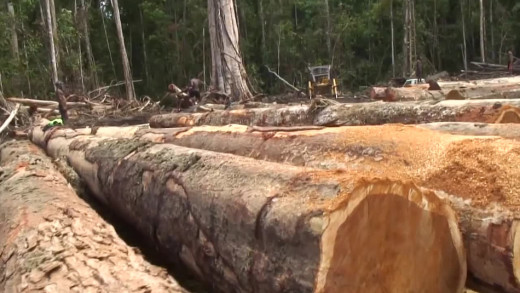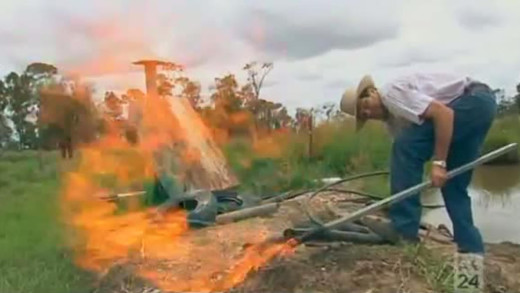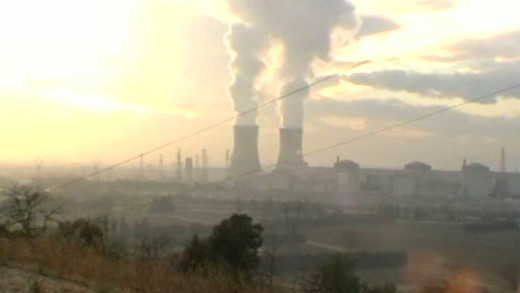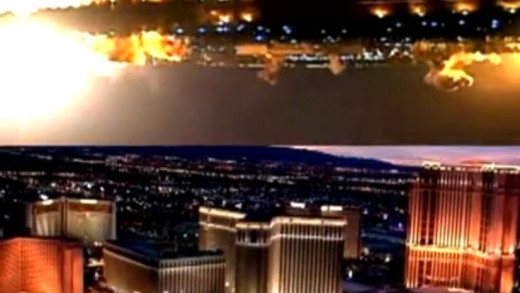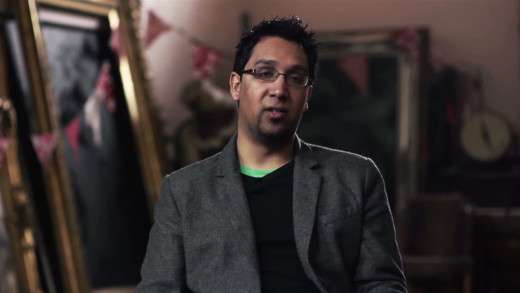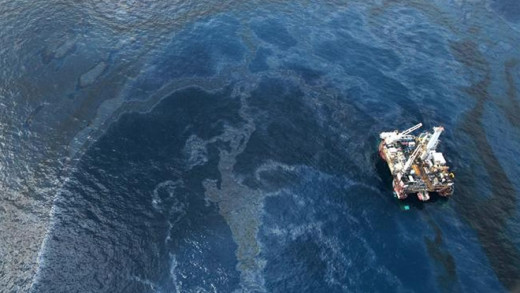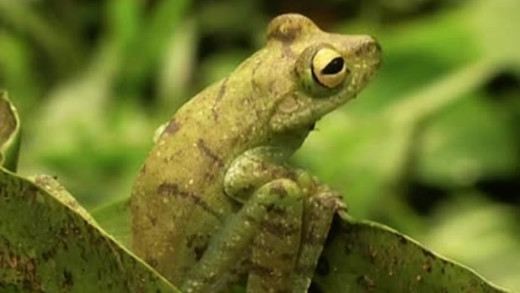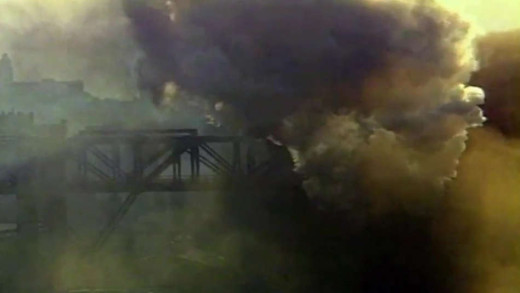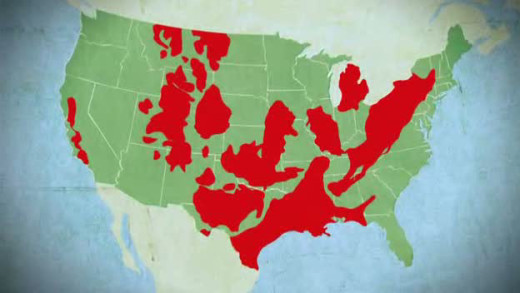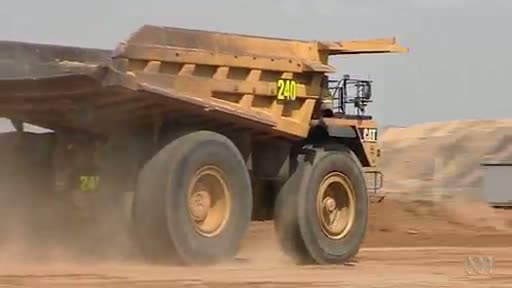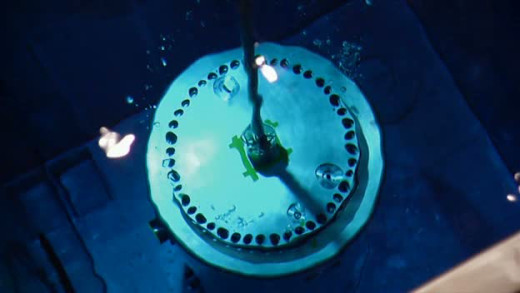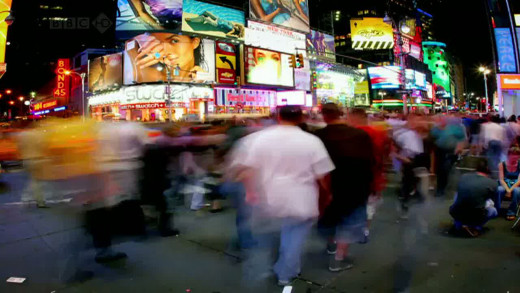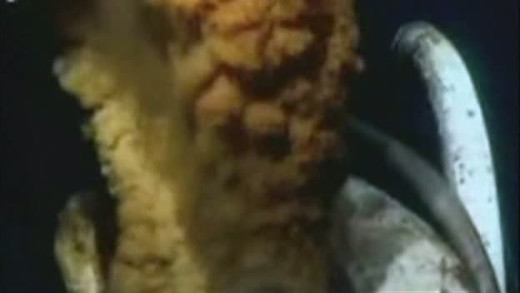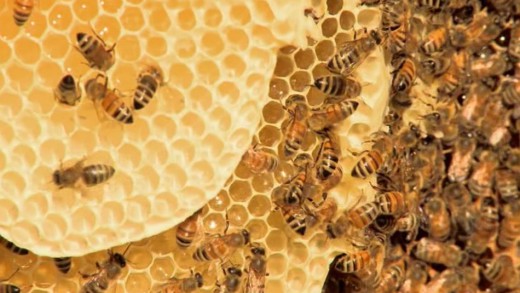People from industrial civilisation are fast to defend it, saying that they depend on this way of life for survival. It's an addiction. But what if civilisation is the very thing that is killing us and everyone else around? How could we survive then? The Fuck-It Point is about this pervasive disabling mindset of civilisation, its true cost, why and how we need to stop it from killing the planet, and why most people from civilisation don't want to do this. Will you do what is necessary to stop this culture from killing the planet?
Decades of over-fishing by the global tuna industry have now pushed the final frontiers to the waters of Papua New Guinea. In the 1950s, commercial fishing was extracting 400,000 tons of tuna from the ocean. This number is now close to 4 million tons. And it comes at a high cost: a human one, now affecting the last places on Earth to receive the full impact of globalisation. Set in "the land of the unexpected," in the north-eastern part of Papua New Guinea, Canning Paradise follows the struggle of Indigenous tribes to protect their way of life, guarded by traditions dating back since the beginning of time. While many have lost hope, others are fighting for survival from the corrupt government and the omnicidal dominant culture.
Mongolia is the next target for the world's biggest mining corporations for copper. The Oyu Tolgoi mine currently under construction in the South Gobi Desert is a combined open-pit and underground mine due to start extraction in the next few months of 2012. But the problems don't end there. The Oyu Tolgoi deal between the Mongolian government and the massive Australian mining company Rio Tinto is truly indicative—Mongolia gets just 34 percent, while Rio Tinto is exempt from a profits tax and receives open access to scarce desert aquifers and the provisioning of water to people living close to land that the mining company now claims to own. The Big Dig documents how this avaricious mining-driven culture comes at the expense of the natural world and the way of life of local communities.
For years, the Earth Liberation Front--autonomous individuals operating in separate anonymous cells without any central leadership--carried out spectacular direct-actions against businesses that destroy the environment. Some of the targets were logging corporations, SUV dealerships, ranger stations, a slaughterhouse and a multi-million dollar ski-lodge at Vail, Colorado that was expanding into national forest. As authorities were not able to crack the case and disbanded many years later, the FBI got lucky when they were led to a former activist who agreed to co-operate with them and become an informant. If A Tree Falls provokes hard questions about environmentalism, activism, and the way 'terrorism' is defined by following the story of the activists who were turned over to the FBI, and their fate...
China's factories provide low cost products such as computers and cars to the rest of the world, but the real cost is high with heavy air pollution, contaminated waterways, decimated land, terrible working conditions, widespread cancer and incidences of deaths. China's Dirty Secrets travels across the country to follow workers at factories that assemble computers, then to e-waste dumps, and finally an industrial incinerator burning medical waste, all showing first-hand the extensive environmental impacts of so-called "economic growth."
The Great Barrier Reef is one of the great natural wonders of the world. But now the area faces threats not only by changes to the climate, but by direct assaults from industry going to any lengths to extract Coal Seam Gas. This report travels to Queensland to show how at least six major port developments -- either being planned or currently underway -- are directly putting The Great Barrier Reef in jeopardy...
Spoil
A group of conservation photographers travel to British Columbia, Canada, to capture the region in response to plans by several oil companies who want to build a pipeline for export from the Alberta tar sands, across British Columbia to the coast of the Great Bear Rainforest. The tar sands in northern Alberta are the largest, most destructive industrial projects in human history. The proposed pipeline not only threatens this area, but many others across Canada and indeed the world. Spoil follows several renowned photographers and videographers who show the Great Bear Rainforest's landscapes, wildlife, and indigenous culture; calling to act before it's too late...
The Last Mountain follows the fight for the last great mountain in North America's Appalachian heartland where mining giants that want to deforest and explode it to extract the coal inside are faced with a community fighting to preserve the mountain. The film considers the health consequences and environmental impacts of mining, burning coal for electricity, also looking at the wider context and history of environmental laws in the United States.
Just Do It -- A Tale of Modern-Day Outlaws follows a group of activists in the UK to document their protests and actions over one year dealing with issues around climate change. Demonstrations at Copenhagen’s 2009 G20 summit and at the Drax coal power station in North Yorkshire, England, are just some of the events documented.
Fracking Hell -- The Untold Story looks at the risks of natural gas development in the Marcellus Shale throughout the United States. From toxic chemicals in drinking water to interstate dumping of radioactive waste that cataclysmically contaminates water supplies, to fracking plans in major population centres including New York City -- are the health consequences worth the supposed economic gains?
Earth at Risk documents the first conference of the same name convened in 2011 by featured thinkers and activists who are willing to ask the hardest questions about the seriousness of the situation facing life on the planet today. Each speaker presents an impassioned critique of the dominant culture, together building an unassailable case that we need to deprive the rich of their ability to steal from the poor, and the powerful of their ability to destroy the planet. Each offers their ideas on what can be done to build a real resistance movement—one that can actually match the scale of the problem. To fight back and win. Literally, the whole world is at stake.
The dominant culture measures itself by the speed of "progress." But what if this so-called progress is actually driving the physical world towards full-force collapse? Surviving Progress shows how past civilisations were destroyed by progress traps—alluring technologies and belief systems that serve immediate needs, but ransom the future. As the total destruction of the environment accelerates and those in power cling to their power ever more tightly in denial, can this globally-entwined civilisation escape a final, catastrophic progress trap?
Bikpela Bagarap (Big Damage) is the story of logging in Papua New Guinea, following the reality of systemic exploitation by logging companies of indigenous communities, where locals are not even citizens in their own country. Customary landowners are coerced into signing release documents, or sign with the understanding that promises for clean water, health and education will be delivered. On the contrary, traditional hunting grounds are destroyed, waterways polluted, and livelihoods threatened.
With access to undercover filming, The Gas Rush reports on a group of farmers and local townspeople in Queensland, Australia who want to halt the rapacious rush for coal seam gas. With scenes similar to that in Gasland -- corporate deceptions, contaminated water supplies, toxic fracking chemicals, leaky wells and people setting their water on fire -- The Gas Rush illustrates the fact that the drive to extract gas is not only happening in the United States...
In Europe, nuclear energy is popularly touted as supposedly the best way to "save the climate." But what's wrong with that argument? Nuclear power stations run on uranium and the by-products are harmful, toxic and controversial for hundreds of thousands of years, not to mention the many dangerous effects of mining for the mineral on the environment and humanity...
END:CIV
By examining the modern culture of industrial civilisation and the persistent widespread violence and environmental exploitation it requires, END:CIV details the resulting epidemic of poisoned landscapes and shell-shocked nations, while further delving into the history of resistance and the prospect of fighting back against such abuse. Detailed is an overview of the environmental movement analogous with the historical whitewashings of the supposedly 'pacifist' social struggles in India with Gandhi and Martin Luther King in the United States; the rise of greenwashing and the fallacy that all can be repaired by personal consumer choices. Based in part on 'Endgame,' the best-selling book by Derrick Jensen, END:CIV asks: If your homeland was invaded by aliens who cut down the trees, poisoned the water, the air, contaminated the food supply and occupied the land by force, would you fight back?
The Crisis of Civilization draws on archive footage and essentially monologue by author Nafeez Mosaddeq Ahmed to detail how global problems like environmental collapse, financial crisis, peak energy, terrorism and food shortages are all symptoms of a single, failed global system...
On April 22, 2010 the Deepwater Horizon offshore drilling rig, run by oil giant BP, sunk into the Gulf of Mexico--creating the world's biggest and most catastrophic environmental crime in history. After over 750 million litres of crude oil and millions of litres of the chemical dispersant Corexit dumped into the sea, the disaster was deemed over and all damage repaired. This is bullshit however. Film-makers Josh and Rebecca Tickell travel to the Gulf of Mexico to document first-hand the extent of environmental and community damage, continuing many years after the explosion. Beginning by tracing BP’s origins and fingerprints across decades of US manipulation in Iran, The Big Fix assembles an indictment of this monumental disaster by unpacking the workings of the complex oligarchies that put pursuit of profit over all other ends...
One generation from now, most people in the United States will have spent more time in the virtual world than in the natural world. New media technologies have changed lives in countless ways. Streams of information now appears in a click. Overseas friends are contactable in an instant. Engulfing video games and streams of endless entertainment to stimulate the senses, dazzle the mind and pander to the acculturated desire to be in control. Even grandma loves Wii. But what are people missing when they're behind screens? How is it already impacting our children, our society, and the planet? At a time when people are at screens more than they are outside, Play Again explores the challenge in dealing with the addiction and returning to the real world...
All over the world, species are going extinct at an extraordinary rate--currently around 250 per day--a scale never before seen. Call of Life investigates the growing threat to Earth’s life support systems from this unprecedented loss of biodiversity by exploring the causes, scope, and potential effects of this mass extinction. The film also looks beyond the immediate causes of the crisis to consider how our cultural and economic systems, along with deep-seated psychological and behavioral patterns, have allowed this situation to develop and be reinforced, and even determine our response to it. Call of Life tells the story of a crisis not only of nature, but also of human nature; a crisis more threatening than anything human beings have ever faced...
Burning Question looks at the public debate surrounding global warming and explores the striking disconnect between a body of evidence from the world's most prominent scientists, and the maze of speculation, rhetorical posturing, and outright misinformation from politicians, PR specialists, and political pundits. Mixing a local focus on Ireland with insights from scientists and leaders from around the world, Burning Question serves as both a primer on climate science, and a penetrating analysis of media framing and perception management.
America's largest domestic natural gas drilling boom is in full swing and the Halliburton corporation claims it has refined a technique called 'hydraulic fracturing' that extracts natural gas in a "safe and environmentally friendly way". But upon examination, film-maker Josh Fox uncovers a trail of secrets, lies and first-hand evidence of intense water contamination and devastating environmental destruction...
It's been described as the boom that keeps on giving -- an export bonanza that will help Australia ride through a world-wide economic downturn. All across Australia, workers have left their jobs to make big money in the mining industry. In the rush to exploit vast natural resources, employers have all but set aside the idea of building and supporting communities, instead they pay big wages to fly-in, fly-out; drive-in, drive-out workers, encouraging them to work long shifts, leaving them with little reason to become part of a local community...
Are we willfully trashing the planet in the pursuit of endless things? What's the source of the frenetic consumer energy and desire? In a fast-paced tour of the ecological and psychological terrain of consumer culture, Shop 'Til You Drop challenges the viewer to confront these questions head-on. Taking aim at the high-stress, high-octane pace of materialism, the film moves beneath the seductive surfaces of the commercial world to show how the other side of consumerism is depletion--the slow, steady erosion of not only the natural world, but basic human and community values. Shop 'Til You Drop contextualises the turbulence of this moment, providing an unflinching critique of the limits of consumerism and the so-called "pursuit of happiness."
Every day, the world over, large amounts of high-level radioactive waste is placed in interim storages which are vulnerable to natural disasters, human-caused disasters, and societal changes. In Finland, the world's first 'permanent' repository is being hewn out of solid rock--a huge system of underground tunnels that must last hundreds of thousands of years. Once the waste has been dumped and the ground is full of this waste, the land is to be sealed off with concrete and "never be opened again." Or so the builders of this dump can hope. But can they ensure that? How is it possible to warn future generations of the deadly waste that's left behind by this culture? How do we prevent future generations from thinking they have found the 'pyramids' of our time, mystical burial grounds, or hidden treasures? Into Eternity is a film about the insanity of nuclear power and the consequences that have impacts for hundreds of thousands of years.
Is the world heading for a population crisis? Since 1950, the human population has more than doubled. What is the effect of this rapid growth on the environment? While much of the projected growth in human population is likely to come from the so-called "developing world," it is the lifestyle enjoyed by the West that has the most impact--in the UK consumers use as much as two and a half times their fair share of Earth's resources. This film examines whether it is the duty of individuals to commit not only to smaller families, but to change the way they live for the sake of humanity and planet Earth.
One year after BP's Deepwater Horizon rig exploded spewed a massive 170 million gallons of oil into the Gulf of Mexico, BP claims victory -- that most of the oil is gone. Investigative journalist Greg Palast sets off to test this claim in person and digs into the history of BP and similar incidents. Revealed is the corporations collusion with government, its strong political influence worldwide, along with the massive ecological impact of the BP explosion, set to last for decades...
In 2006, newspapers around the United States began to publicise a unnerving phenomenon. Honeybees were a mysteriously disappearing from beehives all around the nation. Queen of the Sun: What Are the Bees Telling Us? investigates the multiple angles of this epidemic. It also explores the historical and contemporary relationship between bees and humans, showing alternative and inspiring beekeepers from all around the globe as they keep bees in natural and holistic ways. From Gunther Hauk in the United States to Massimo Carpinteri in Italy, each has unique philosophical and spiritual insights into their bees and are striving to keep their bees safe from pesticides, and the other causes behind colony collapse.
